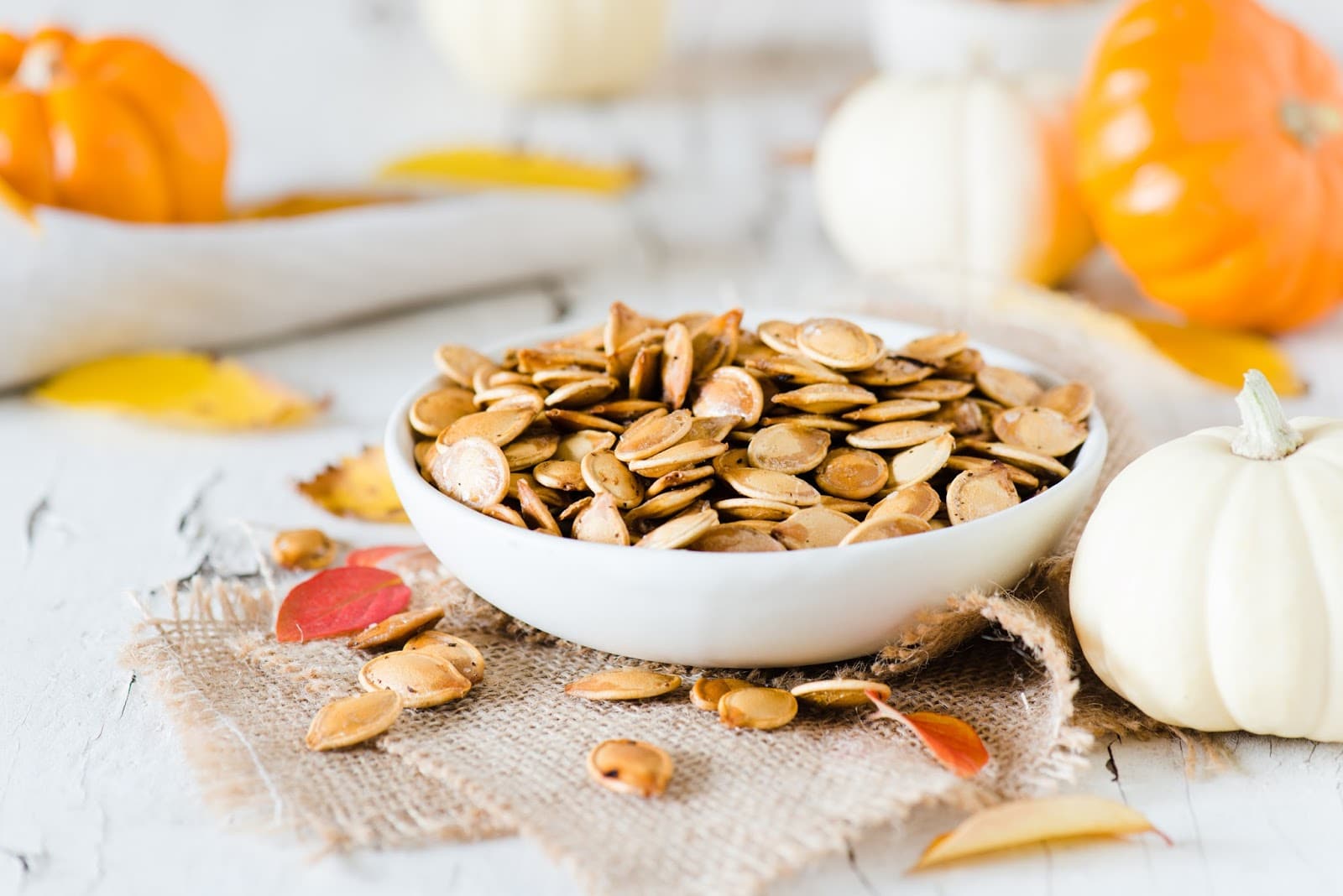
Top 5 Benefits of Pumpkin Seeds • Paleo Foundation
Nuts and seeds, including almonds and pumpkin seeds, are an important source of plant-based protein. Pumpkin Seeds offer around 31% more protein than almonds. Pumpkin Seeds have 30.2 grams of protein per 100 grams (or 8.5g per serving), while almonds have 21.2 grams of protein per 100 grams (or 5.9g per serving).

Pumpkin seeds and almonds stock image. Image of healthy 76261417
Almonds and pumpkin seeds differ in taste, texture, and nutritional content. Almonds are tree nuts with a mild, sweet flavor, while pumpkin seeds taste nutty. Almonds are higher in vitamin E, while pumpkin seeds are rich in magnesium and zinc. In the realm of nutritious snacks, almonds, and pumpkin seeds emerge as wholesome powerhouses, each.
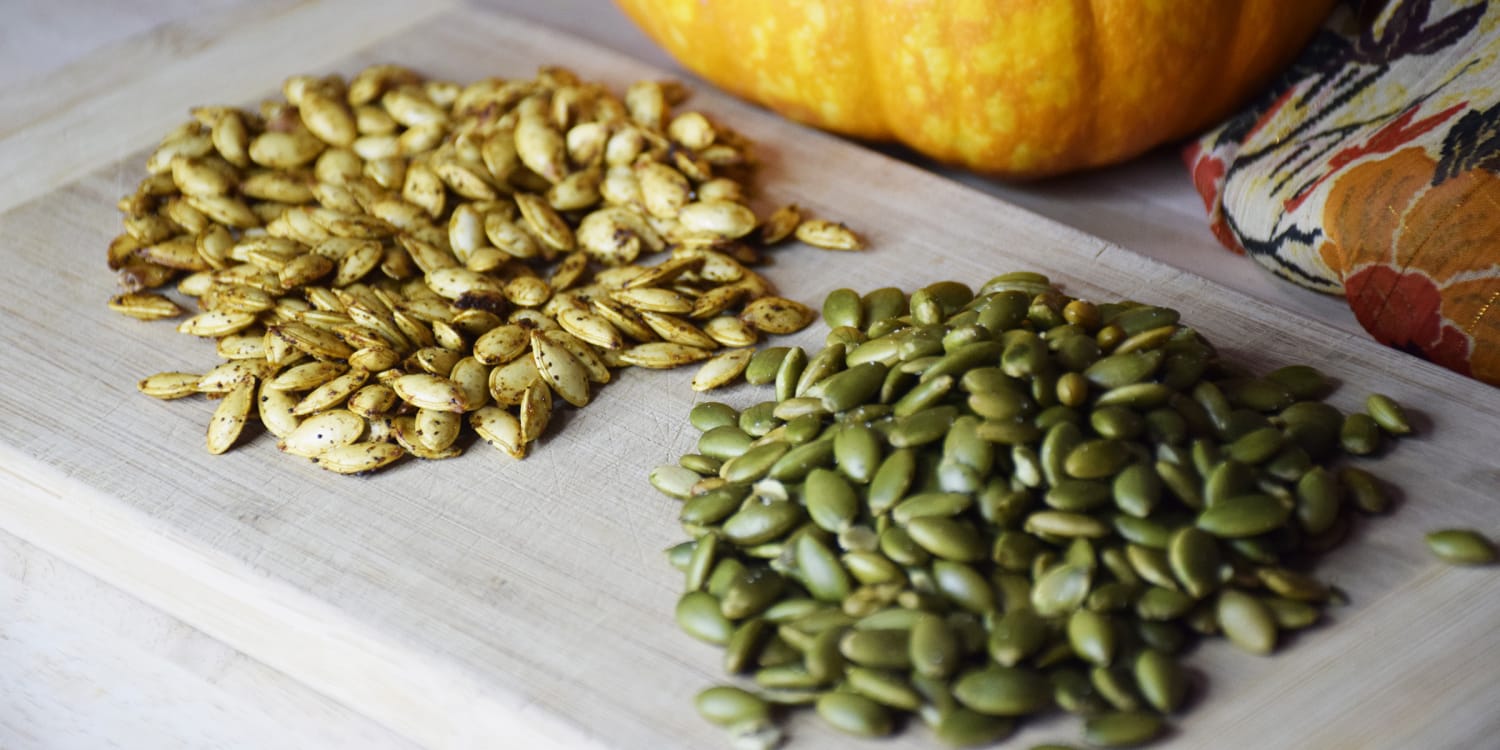
Pumpkin seeds 101 How to buy, clean and roast pumpkin seeds
Protein Content: - Pumpkin Seeds: 1 ounce (28 grams) of pumpkin seeds contains approximately 9 grams of protein, making them an excellent plant-based protein source. - Almonds: 1 ounce (28 grams) of almonds contains about 6 grams of protein, slightly lower than pumpkin seeds but still a notable amount.
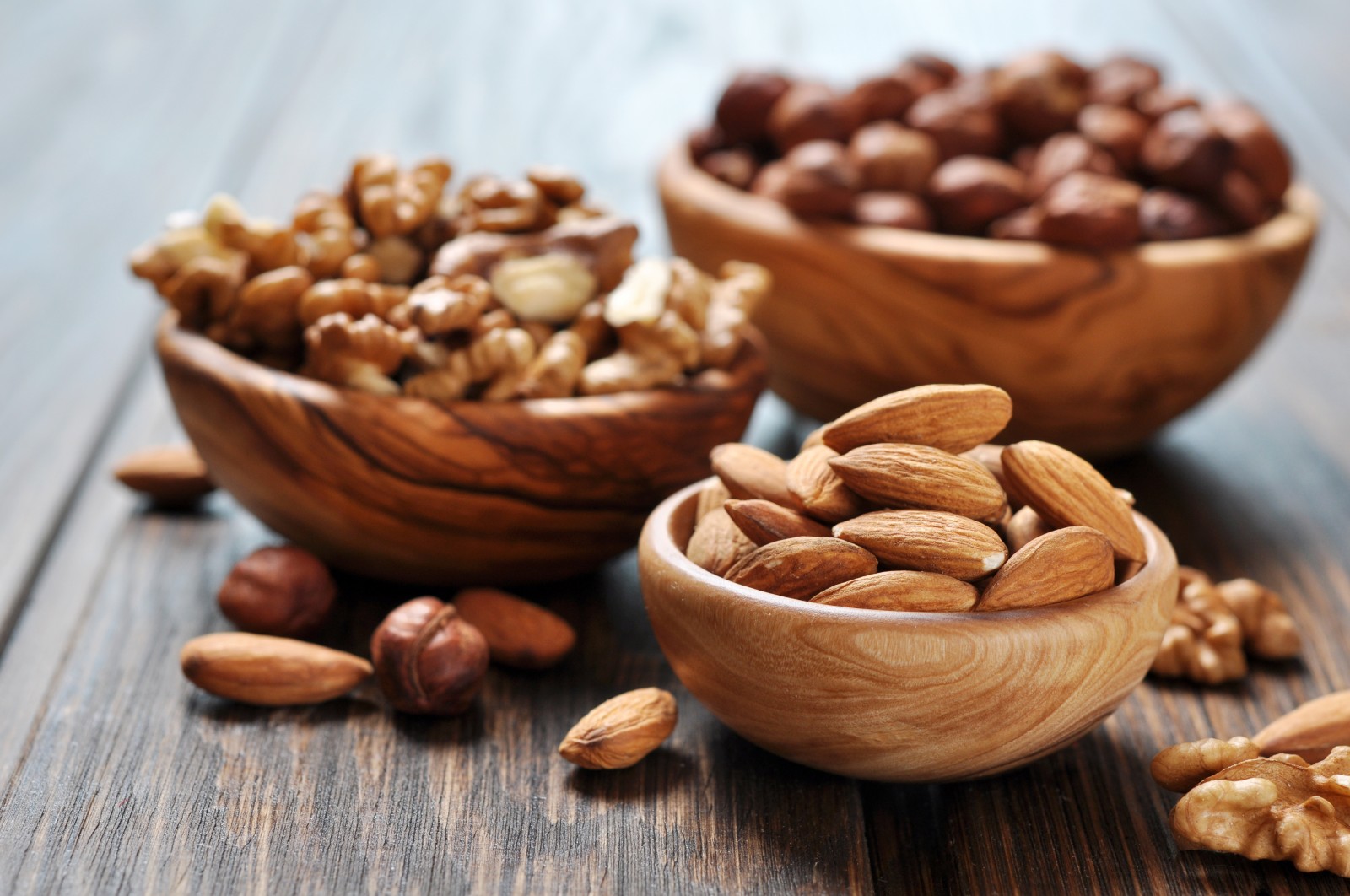
Soaked nuts Better protein foods than whey?
Almonds. Almonds are a versatile substitution packed with nutrients. Each ounce of almonds contains about 6g of protein and is a great source of Vitamin E, magnesium, and healthy fats. Use them in a 1:1 ratio to replace pumpkin seeds in recipes for a slightly sweeter taste and a crunchier texture.

Pepitas vs Pumpkin Seeds Nutrition Difference Raw or Roasted
Pepitas have more calories than pumpkin seeds, with 172 calories per ounce, while pumpkin seeds have only 126 calories per ounce. When it comes to protein, pepitas are the clear winner, with twice the amount of protein as pumpkin seeds. And pepitas are lower in carbohydrates, with four grams per ounce, while pumpkin seeds have 15 grams per ounce.
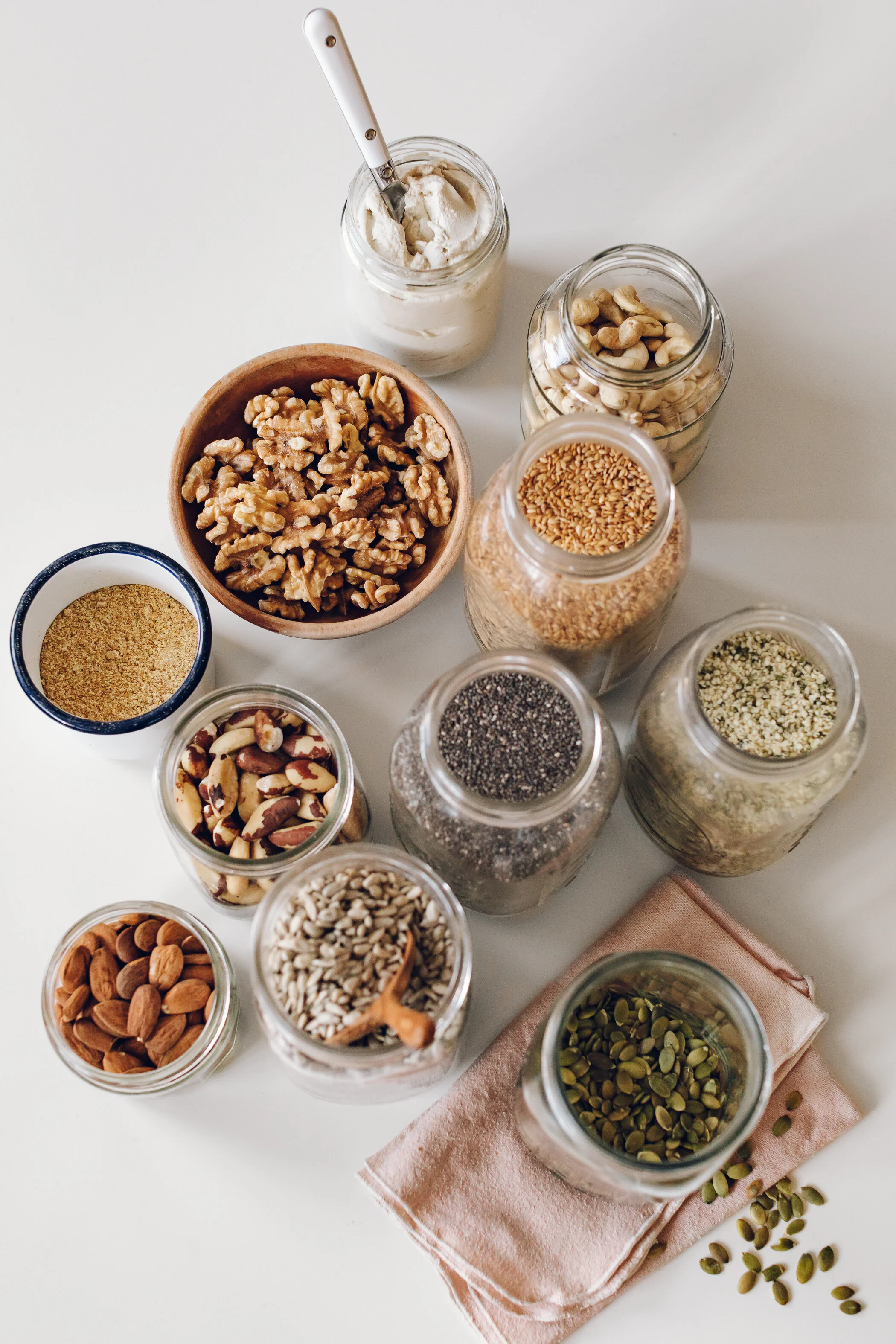
Top 9 healthiest foods in the world Louisiana Travel
vs. Pumpkin seed — In-Depth Nutrition Comparison. Compare to Pumpkin seed by vitamins and minerals using the only readable nutrition comparison tool.

Dried Green Organic Pumpkin Seeds at Rs 410/kg in Delhi ID 25227726173
Total fat in chia seeds and pumpkin seeds: Chia Seeds: 30.7 grams per 100 grams. Pumpkin Seeds: 49 per 100 grams. Speaking of saturated fats, chia seeds are 62% lower in saturated fats. Chia Seeds and pumpkin seeds contain 3.3 grams and 8.7 grams of saturated fat per 100 grams, respectively.
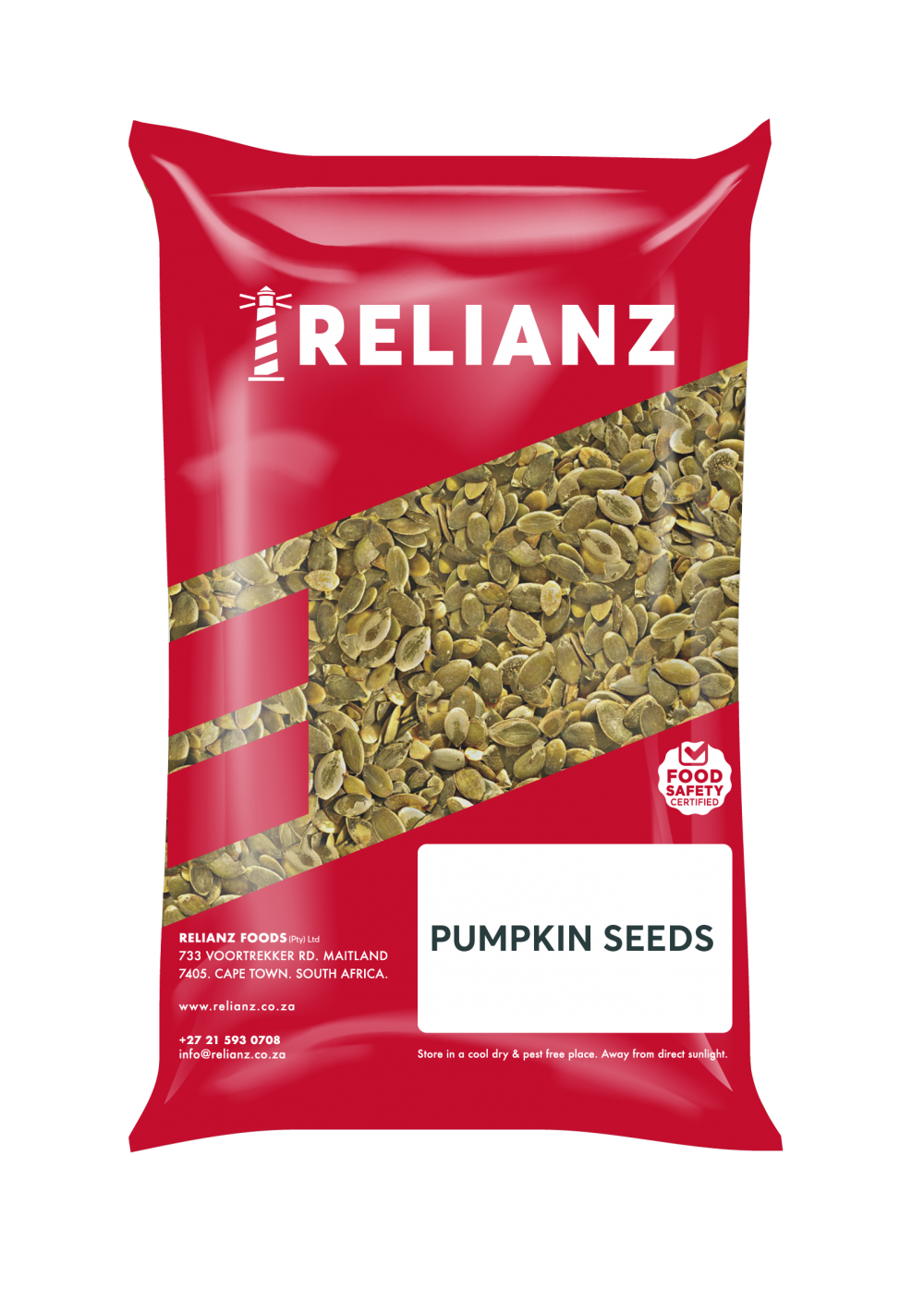
Bulk Pumpkin Seeds Suppliers Relianz Foods
One cup of raw pumpkin seeds yields about 1 1/4 cup flour. Blend until the seeds have turned into a fine flour, about 15-30 seconds. The flour is done when it feels like powder with a very slight texture (not sandy). If you see larger pieces of seeds, keep blending. Keep your flour in an airtight container (preferably glass) in the fridge to.
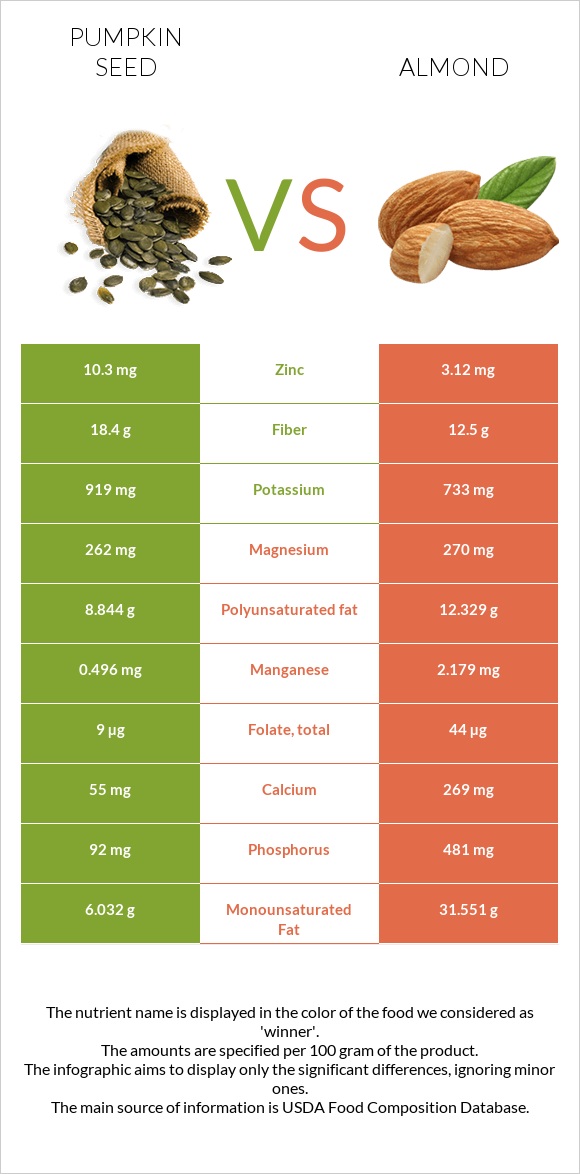
Pumpkin seed vs Almond InDepth Nutrition Comparison
Pumpkin seeds are an excellent source of zinc and fibre, while almonds are high in vitamin B2, manganese, phosphorus, copper, calcium, vitamin B3, vitamin B1, and folate. However, pumpkin seeds have three times more zinc than almonds. On the other hand, almonds have 84% more vitamin B2 than pumpkin seeds.
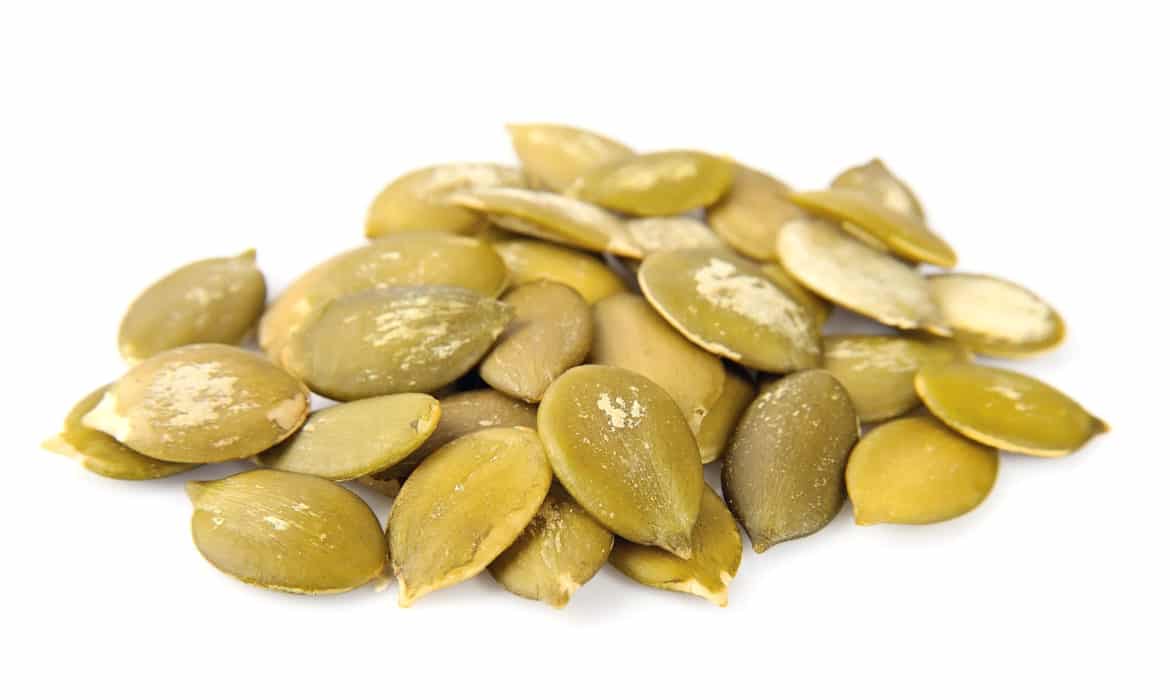
6 Health Benefits of Pumpkin Seeds Chicago Health
The main differences between Pumpkin seed and Almond. Pumpkin seed has more Zinc, and Fiber, however, Almond has more Vitamin B2, Manganese, Phosphorus, Copper, Calcium, Vitamin B3, Vitamin B1, and Folate. Daily need coverage for Vitamin B2 from Almond is 84% higher. Almond has 3 times less Zinc than Pumpkin seed.

Pumpkin Seeds Or Sunflower Seeds Which Is Right For You? Real Food
The main difference between pepitas and pumpkin seeds has to do with where they come from. While both pepitas and pumpkin seeds come from pumpkins, pepitas are dark green in appearance and come from a specific variety hull-less pumpkins. Pumpkin seeds, like the ones you often scoop out when carving pumpkins for Halloween, are examples of.
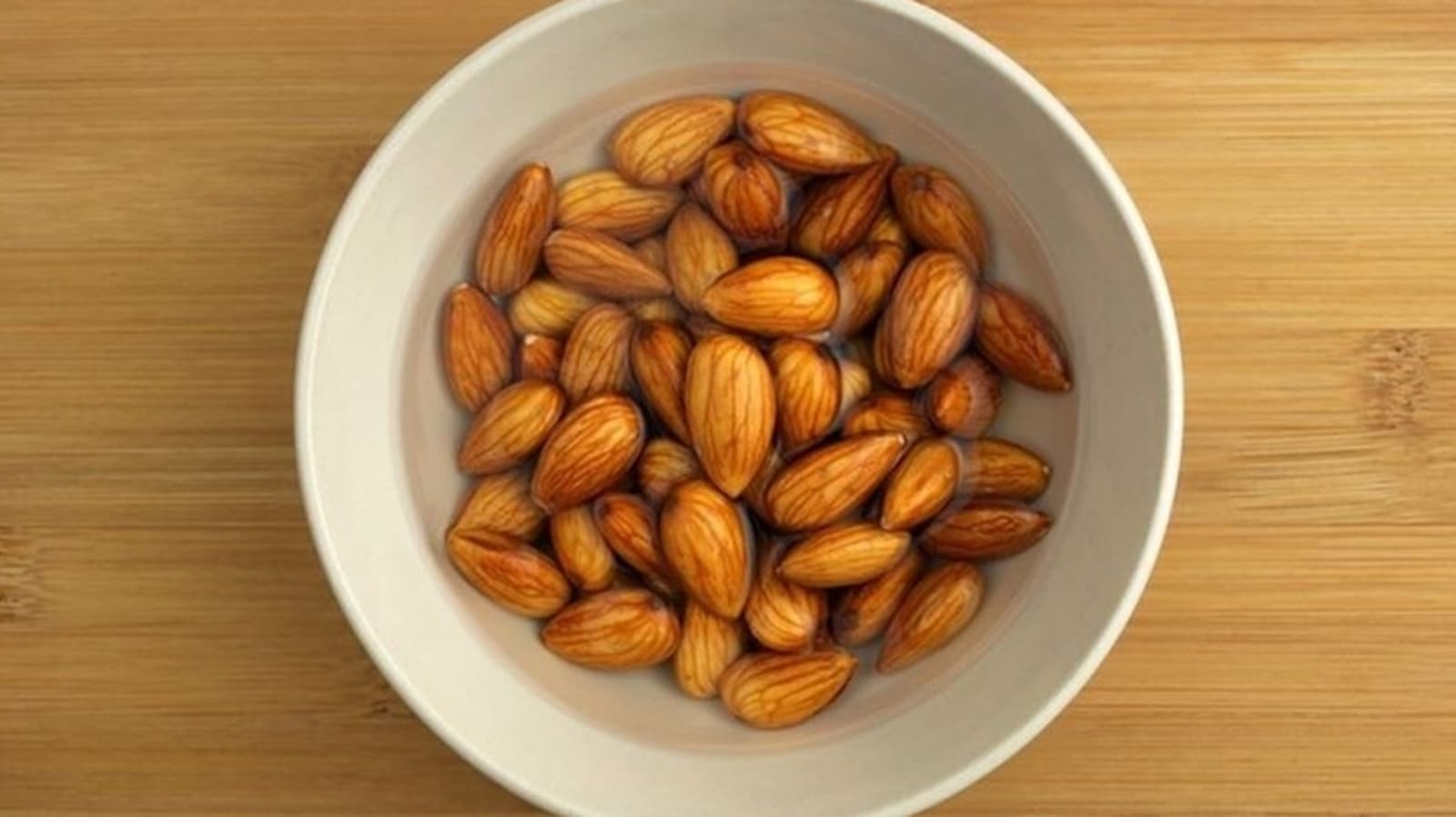
Why we should eat almonds after soaking and removing peel Health
A single serving of Pumpkin seeds provides about 10% of the daily recommended value (DV) of Vitamin E. A serving of almonds contains only 5% DV of this nutrient. If you don't consume enough source of Vitamin E, you may experience dryness in your eyes, nose, mouth, and throat. This condition is called xerostomia.

Pumpkin Seeds (Roasted & Salted) Bunker Hill Cheese
Almond has more Vitamin B2, Manganese, Phosphorus, Copper, Calcium, Vitamin B3, Vitamin B1, and Folate, however, Pumpkin seed has more Zinc, and Fiber. Daily need coverage for Vitamin B2 from Almond is 84% higher. Pumpkin seed has 13 times less Vitamin B3 than Almond. Almond has 3.618mg of Vitamin B3, while Pumpkin seed has 0.286mg.
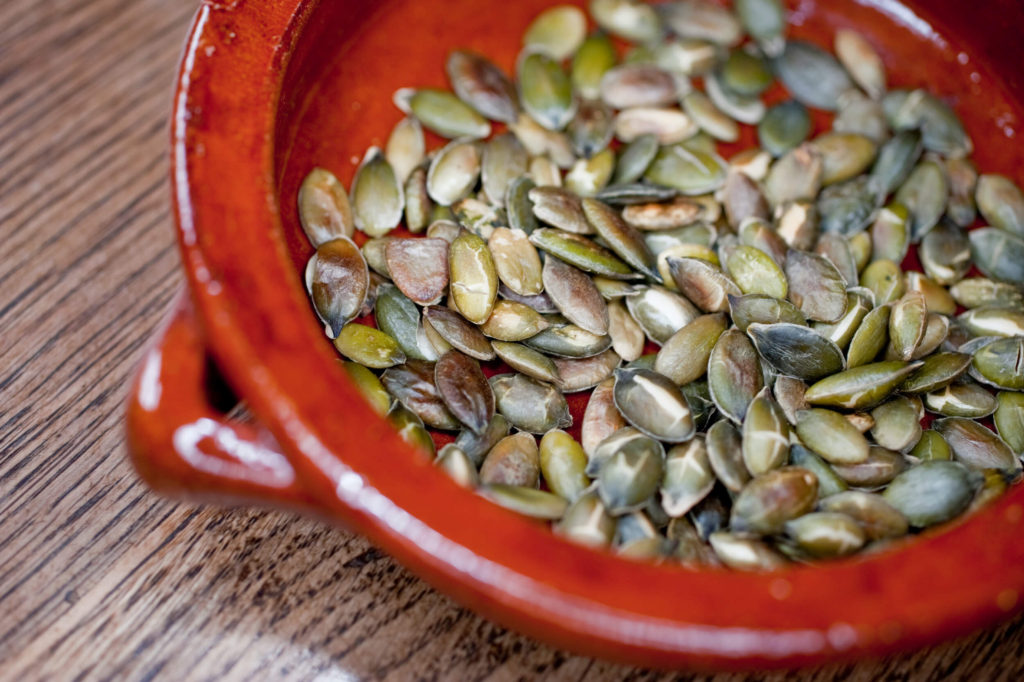
PUMPKIN SEEDS ONE OF THE WORLD'S HEALTHIEST FOODS Project Wellness Now
Carbs. Pumpkin seeds have four times more carbohydrates than a walnut. They contain 53.75g of carbs per 100g, whereas pumpkin seeds provide 13.71g of carbs per 100g. Walnut contains 6.7g of fiber and 7g of net carbs. Pumpkin seeds are also richer in fiber: 18.4g of fiber and 35.35g of net carbs. Walnut is considered low-carb food.
EpiCurious Generations Roasted Pumpkin Seeds
Almonds are packed with Vitamin E and carry a crunchy bite, whereas pumpkin seeds are a magnesium-rich snack with a chewy yet slightly crisp texture when roasted. From a culinary standpoint, almonds excel in baked goods and as a topping, while pumpkin seeds are versatile - perfect for giving salads and bread a nutritious boost.

Pin on Health & Diet
Pumpkin, hemp, and watermelon seeds all have more protein than most nuts including almonds (6g per ounce) and (the legume) peanuts, plus they are chock-full of good nutrition.